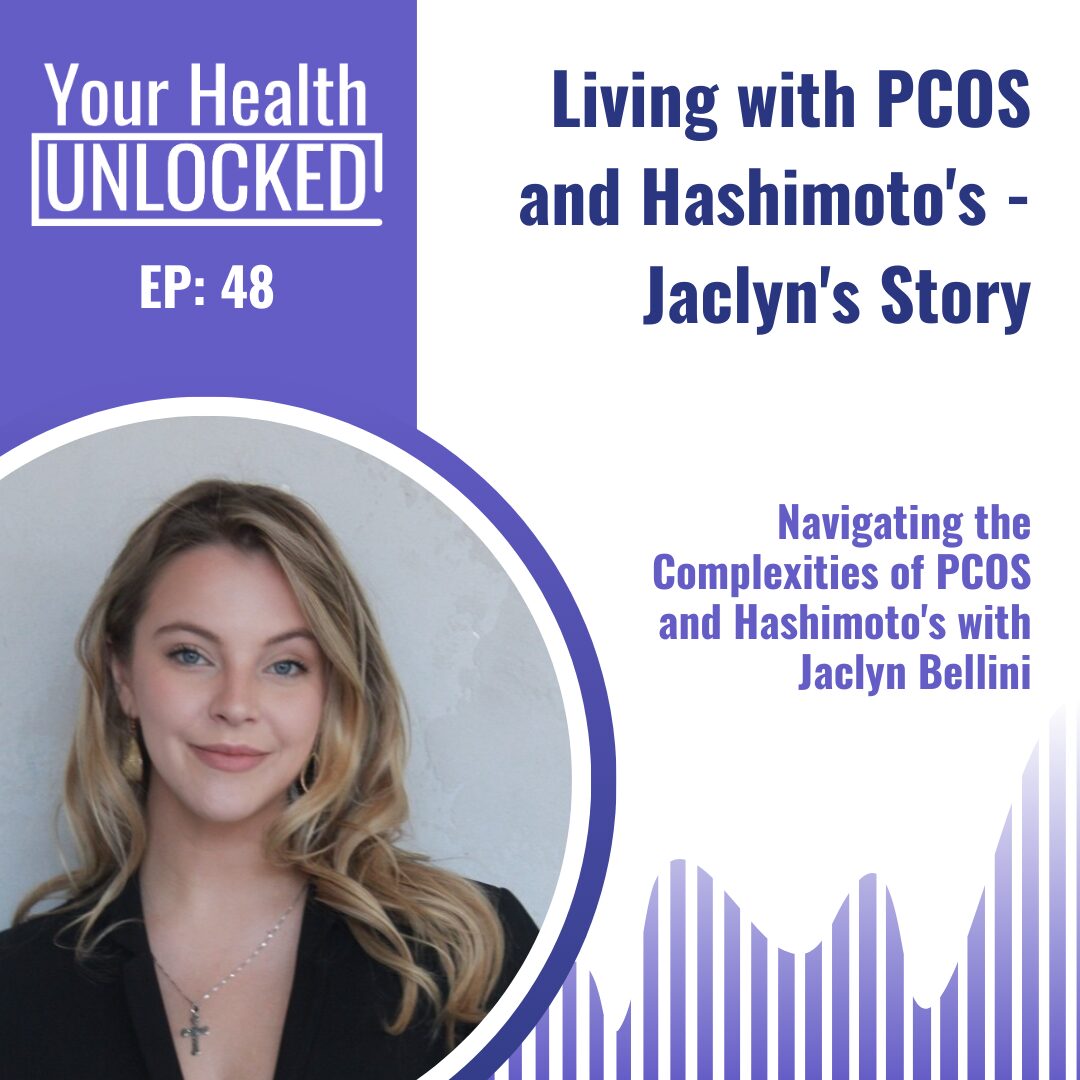
Your Health Unlocked Episodes
048: Living with PCOS and Hashimoto’s – Jaclyn’s Story
June 27, 2024
---
Deep Dive Articles
Publication Date: March 15, 2021
By: Bobbi Ausubel and Jessie Brown-Clark

By Bobbi Ausubel and Jessie Brown-Clark
Do you know anyone who has been ill with COVID-19 and still doesn’t feel well? While experts are still studying the novel coronavirus and its devastating effects, there is growing evidence that an estimated 25 – 35% of COVID-19 survivors will experience lingering symptoms[1]. The widespread nature of extended post-COVID-19 symptoms has led to the use of a new term, “long COVID-19.”
Some patients with this condition may be experiencing a disease that is already recognized but not widely understood: Myalgic Encephalomyelitis/Chronic Fatigue Syndrome (ME/CFS). ME/CFS is one of several post-viral conditions with symptoms that are consistent with those reported by long COVID-19 patients. Several scholars are exploring the relationship between COVID-19 and ME/CFS, as much of what we learn about long COVID could inform care for people with ME/CFS and vice versa [2,8]. In July of 2021, Long COVID was added to the Americans with Disabilities Act as a recognized condition that could result in a disability.
ME/CFS is a debilitating, multi-system chronic disease. Key symptoms can include profound fatigue, cognitive impairment, sleep disorders, autonomic dysfunction (characterized by dizziness upon standing, among other symptoms), chronic pain, and symptoms that are often exacerbated by exertion. One of the hallmarks of ME/CFS is “post-exertional malaise” (PEM), the exacerbation of fatigue, discomfort, and other symptoms after a person exerts her or himself. With PEM, even normal activities or mild exertion results in deteriorating physical and mental stamina and worsening of other symptoms. PEM can sometimes occur immediately post-exertion but is generally delayed for 24 hours or more.
In the U.S., between 836,000 and 2.5 million people suffer from ME/CFS. Research has shown that ME/CFS is about two to four times more likely to occur in women than men [3]. There are early indications that this trend will continue in long COVID, as well [4]. While the exact cause is unknown, up to 80 percent of ME/CFS cases begin with a viral infection [5]. History shows that when a severe infection like COVID-19 sweeps through the population, ME/CFS often follows.
If you have had COVID-19 and are experiencing symptoms of long COVID-19 or ME/CFS (including PEM), you can assess whether to talk to a provider using this checklist, which is based on criteria from the Institute of Medicine report, Beyond Myalgic Encephalomyelitis/Chronic Fatigue Syndrome: Redefining an Illness:[6]
Finding a doctor who is knowledgeable about ME/CFS can be challenging. While educational resources for medical practitioners have improved significantly in recent years, many providers remain unaware of the scope and true impact of the disease. There are a small number of ME/CFS specialists in the U.S. Still, many patients do their best to establish a good working relationship with a primary care provider and one or more specialists to manage their specific issues. You can help educate your provider by sharing the first page of the Centers for Disease Control and Prevention’s (CDC) website for providers about ME/CFS.[7]
When you are ready to make an appointment with a health care provider, these steps can help you start the conversation and make the most of your visit:
The best way to prevent long COVID-19 is to protect yourself and others from becoming infected through vaccination, getting tested for COVID-19 if needed, and ensuring excellent hand hygiene when washing hands or using hand sanitizer [8].
While the Food and Drug Administration has not approved any treatments for ME/CFS, there is hope. The degree to which your life is impacted by ME/CFS depends on many things, including the severity of your disease. Individuals with ME/CFS learn over time what works best for them, and many rely on the robust community of patients and advocates who share resources, information, and support.
Some useful resources are:
Bobbi Ausubel is a longtime advocate for ME and is facilitating ‘Writing From Our ME Lives,’ a writing group for people with ME. Jessie Brown-Clark, the Engagement Coordinator at the Solve ME/CFS Initiative (Solve M.E.), is passionate about working with ME/CFS advocates to make this disease widely understood, diagnosable, and treatable.
Updated 2/13/2024 by Rachel Grimsley, RN, BSN, MSN, Nurse Writer
[1] Retrieved from American Medical Association: https://www.ama-assn.org/delivering-care/public-health/dr-fauci-offers-2021-forecast-covid-19-vaccines-treatments
[2] Komaroff AL, Bateman L, Will COVID-19 Lead to Myalgic Encephalomyelitis/Chronic Fatigue Syndrome? Front. Med., January 18 2021. doi.org/10.3389/fmed.2020.606824.
[3] Institute of Medicine. (2015). Beyond Myalgic Encephalomyelitis/Chronic Fatigue Syndrome. Washington, DC: The National Academies Press. Retrieved from https://doi.org/10.17226/19012.
[4] Davis HE, Assaf GS, McCorkell L, et al., “Characterizing Long COVID in an International Cohort: 7 Months of Symptoms and Their Impact,” medRxiv. December 24, 2020. doi.org/10.1101/2020.12.24.20248802.
[5] Institute of Medicine, Beyond Myalgic Encephalomyelitis/Chronic Fatigue Syndrome. Washington (DC): National Academies Press, 2015. doi.org/10.17226/19012
[6] Solve M.E., Do I Have ME/CFS? Quiz, 2015. Online: www.solveME.org: https://solvecfs.org/do-i-have-mecfs-quiz/
[7] Centers for Disease Control and Prevention (CDC), Myalgic Encephalomyelitis/Chronic Fatigue Syndrome: Information for Healthcare Providers, Atlanta (GA): CDC, 2020. Online: www.cdc.gov/me-cfs/healthcare-providers/index.html.
[8] Centers for Disease Control and Prevention (CDC). (2023, July 20). Long COVID or Post-COVID conditions. CDC. https://www.cdc.gov/coronavirus/2019-ncov/long-term-effects/index.html
